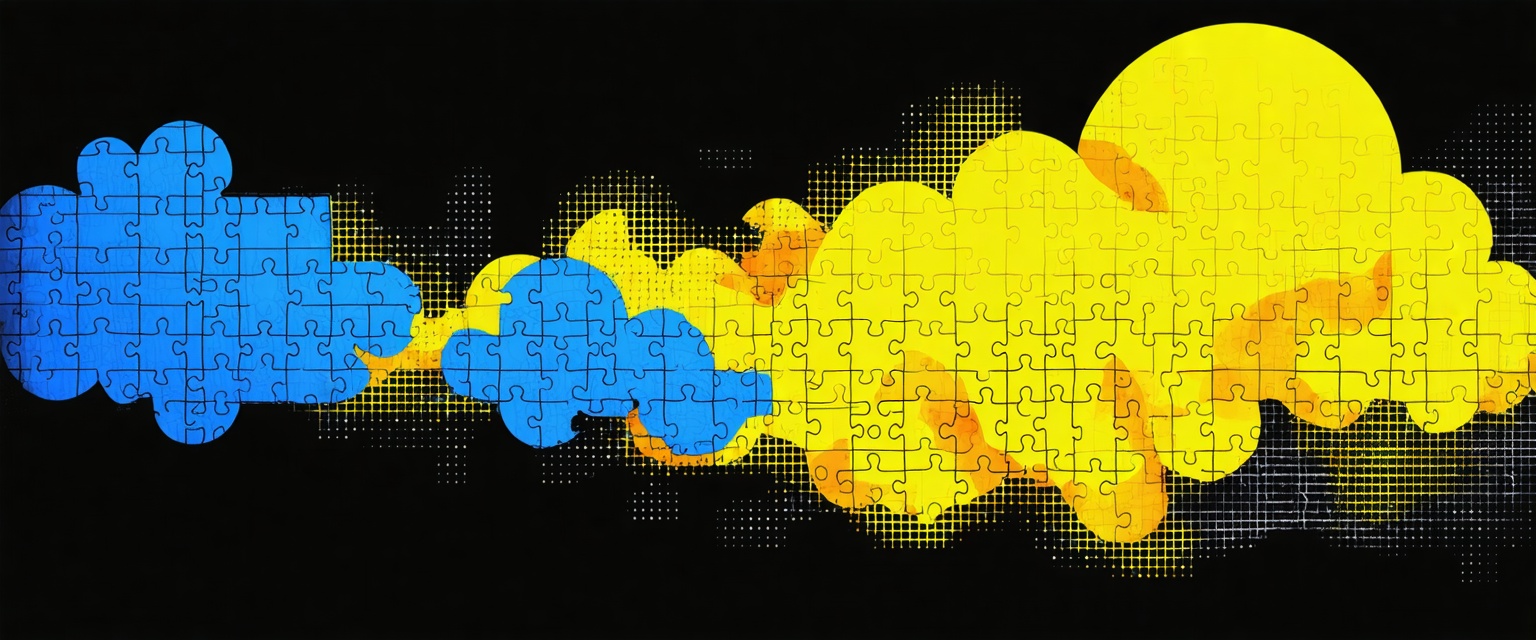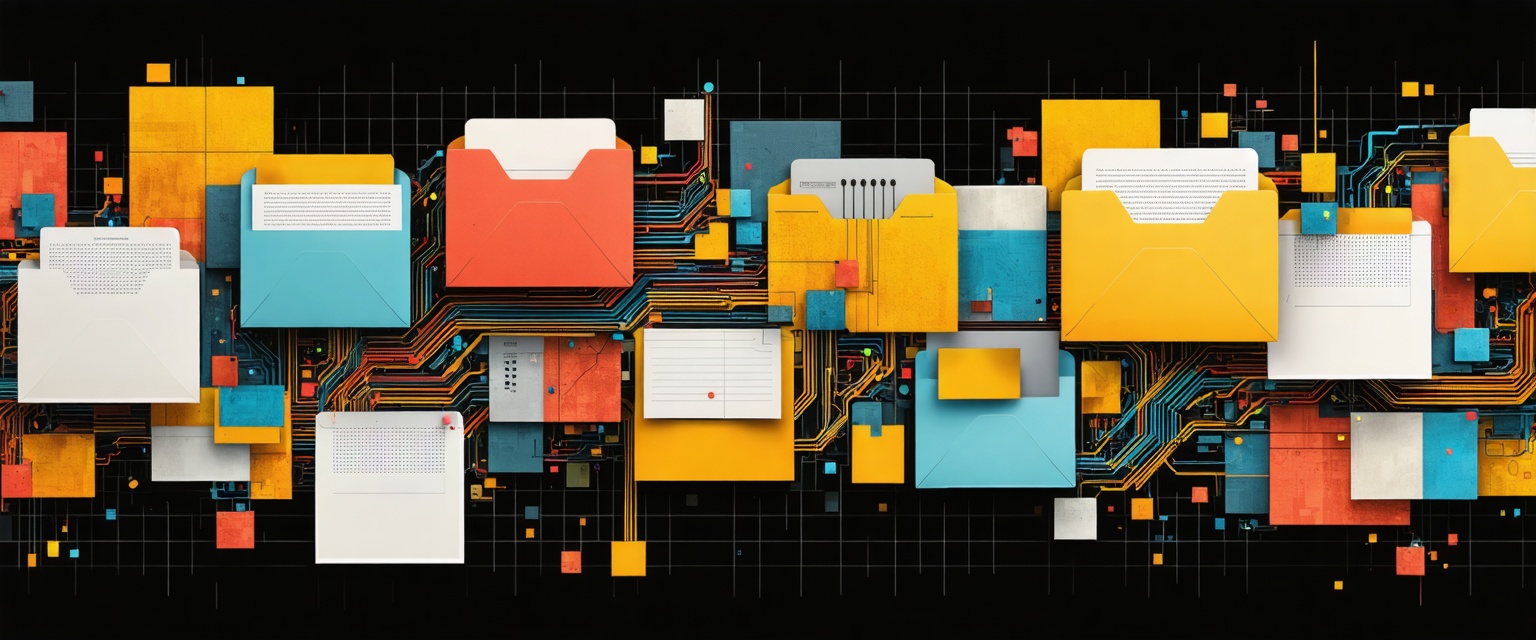Every construction proposal holds hidden risks that can derail projects and erode profits. For decades, identifying these risks meant tedious manual reviews, endless meetings, and hoping your team caught everything.
Thanks to advancements in Agentic AI, this process is becoming dramatically easier. AI agents like Datagrid now offer a solution by automatically analyzing thousands of documents in minutes, identifying potential problems before they become costly mistakes.
What is Proposal Risk Identification?
Proposal risk identification is the systematic process of identifying, analyzing, and documenting potential risks that could impact the success of a construction project before execution begins. This foundational step enables informed decision-making, effective resource allocation, and planning strategic mitigation.
Traditional risk identification in construction relies on several established methods:
- Rules of Thumb Approach: Drawing on the contractor's experience and judgment, this intuitive method forms the basis of many risk assessments and can be highly subjective.
- Checklists: These standardized lists of potential risks based on historical project data serve as quick reference tools to ensure obvious risks aren't overlooked.
- Flowcharts: These visual tools map out project processes to identify potential risk points within workflows, particularly useful for understanding activity sequences and interdependencies.
- Brainstorming: This collaborative approach gathers team members to identify potential risks, foster open discussion, and leverage diverse perspectives collectively.
- Delphi Method: This structured approach collects expert opinions through multiple rounds of questionnaires with controlled feedback, aiming to reach consensus while reducing bias.
- Preliminary Risk Mapping: This technique creates visual matrices to plot risks based on probability and impact, helping prioritize risks by significance.
While valuable, these traditional methods have significant limitations. Many lack systematic approaches, relying too heavily on individual judgment. They also tend to be static rather than dynamic, often failing to adapt to changing project conditions.
The industry is gradually transitioning to more comprehensive risk management practices. AI examines more variables than humans can handle, cuts assessment time significantly, delivers more accurate risk evaluations, and enables proactive management through continuous monitoring, effectively automating proposal creation.
Why Automating Proposal Risk Identification Is Important for Construction Executives
As a construction executive, automated proposal risk identification directly shapes your project success and bottom line.
Compliance and Legal Protection
Effective risk identification ensures your proposals meet all compliance requirements, reducing your chances of regulatory violations and legal disputes. Additionally, it aids in improving on-site safety communication, further enhancing compliance.
Proactive Problem-Solving
Utilizing AI agents to automate proposal risk identification can solve problems before they happen rather than addressing issues later. You'll develop better mitigation strategies early, assign resources wisely, and avoid costly surprises during execution.
Improved Decision-Making
Enhancing proposal risk identification with AI provides crucial insights for your most important choices. With a clear picture of potential challenges, you'll make smarter go/no-go decisions on project bids, price projects accurately, and set appropriate contingency reserves.
Enhanced Competitive Advantage
Thorough, AI-driven risk identification makes your proposals stand out and helps improve client engagement. Showing clients you understand project complexities can build their confidence, showcase your expertise, and contribute to enhancing project outcomes.
Financial Protection
Catching risks early with AI safeguards your profits. Projects with solid risk management typically stay on budget and schedule. This helps you avoid cost overruns, prevent schedule delays that trigger penalties, and protect profit margins.
As projects become more complex, AI-powered tools analyze massive datasets to uncover patterns and risks humans might miss.
Common Time Sinks in Manual Proposal Risk Identification
Traditional risk identification methods, while valuable, create significant inefficiencies that impact your productivity:
Rules of Thumb Approach
Many contractors rely on gut feelings for risk identification. While experience matters, this leads to inconsistent results, with hours wasted debating potential issues based on opinions rather than facts.
Checklists and Flowcharts
Standard checklists provide structure, but they can be tedious to complete and often miss project-specific details. Creating new flowcharts for each proposal steals time you could spend on strategy.
Brainstorming Sessions
These meetings generate ideas, but frequently run long with diminishing returns. Scheduling conflicts and the need for multiple stakeholders make organizing effective sessions a challenge in itself.
Compliance and Regulatory Checks
Keeping proposals aligned with current regulations requires constant attention and manual verification against changing standards. With today's complex projects generating massive amounts of data, manual methods struggle to process and analyze this information effectively.
Limited Scope and Static Nature
Traditional methods often focus on certain risk types while neglecting others, requiring additional time to broaden the assessment. These approaches also lack mechanisms for continuously identifying new risks as projects evolve.
Insufficient Integration with Project Management
When risk identification exists as a standalone procedure rather than integrating with project management, teams duplicate efforts and struggle to translate identified risks into actionable plans.
Without automated tools, your team might spend days combing through spreadsheets, financial records, and industry reports to extract relevant risk information.
How AI Agents Transform Proposal Risk Identification
AI agents revolutionize risk identification through smart technologies that streamline work while improving accuracy.
Data Aggregation & Contextual Analysis
AI systems automate data aggregation by pulling together and analyzing vast amounts of data from multiple sources. They process historical project records, real-time site data, weather forecasts, and regulatory documents at once.
Using natural language processing, AI performs data enrichment and analysis, extracting key information from contracts and incident reports, and catching inconsistencies and compliance risks.
Predictive Risk Modeling
Machine learning algorithms find patterns in past project failures, cost overruns, and safety incidents to predict similar risks in new proposals.
These models test project scenarios differently, to show how problems might affect a project, so you can plan ahead.
Automated Risk Scoring & Prioritization
AI calculates the probability and impact of each risk, creating a ranked list of concerns and enabling automated report generation.
This helps you focus on the risks that truly threaten project success, ensuring your resources target what matters most.
Real-Time Compliance & Regulatory Checks
By monitoring data streams, AI constantly tracks regulatory updates and compares them with project data to ensure compliance.
The system automates communications and notifications by alerting your team to potential violations, allowing for early action that prevents penalties or delays.
Dynamic Risk Mitigation Recommendations
Based on identified risks, AI provides data-driven insights and suggests custom mitigation strategies that adapt as project conditions change.
If the system detects potential material delivery delays, it recommends alternative suppliers or timeline adjustments.
Integration with Proposal Tools
AI risk identification works seamlessly with your existing proposal and project management tools, providing risk updates as you develop proposals.
This integration puts risk insights directly into your regular workflows through workflow automation, making risk management part of your proposal creation process.
Datagrid for Construction Proposal and Vendor Management
Construction professionals juggle complex proposal documents, vendor qualifications, and bid materials across multiple projects. Datagrid's AI platform simplifies these processes by processing proposal documents efficiently, while boosting risk management:
RFP Response Acceleration
Datagrid processes thousands of RFP documents simultaneously, pulling out key requirements, compliance needs, and submission deadlines. This ensures complete submissions and reduces the risk of disqualification from missed elements.
Vendor Qualification Automation
AI agents analyze vendor documentation, safety records, insurance certificates, and performance history, creating comprehensive qualification reports. This helps you make smart decisions about potential partners while saving hours of review time.
Bid Comparison Intelligence
The platform automatically extracts and organizes pricing, materials, timelines, and exclusions from multiple bid packages, creating side-by-side comparisons that highlight key differences and best values.
Subcontractor Performance Analysis
Datagrid evaluates subcontractor reliability, quality, and schedule adherence across projects by processing historical data, informing future vendor selection and mitigating risks associated with poor-performing partners.
Material Specification Compliance
The AI analyzes product submittals against project specifications to identify compliance gaps, substitution opportunities, and potential installation conflicts before materials arrive onsite, reducing costly rework and delays.
Contract Term Extraction
Datagrid automatically identifies critical terms, payment schedules, and change order provisions across vendor agreements, ensuring key clauses aren't overlooked.
Document Version Control
The platform tracks and compares proposal revisions, identifying substantive changes between versions so your team always works with current information, reducing errors and miscommunication.
Implementing Datagrid helps your procurement team can focus on strategic vendor relationships. At the same time, AI handles document-intensive analysis, addressing traditional bottlenecks and enabling more informed decision-making throughout the proposal and vendor management process.
Simplify Construction Tasks with Datagrid's AI
Don't let data complexity slow your team down. Datagrid's AI platform helps construction professionals streamline workflows and make better decisions by:
- Automating data processing to eliminate tedious manual tasks.
- Reducing processing time for large datasets from days to minutes.
- Delivering instant, actionable insights for proactive risk management.
- Boosting team productivity through streamlined information flows.
Datagrid works smoothly with your existing systems, helping you harness your data without disrupting established workflows.
Take the first step toward optimizing your operations by creating a free Datagrid account today.













